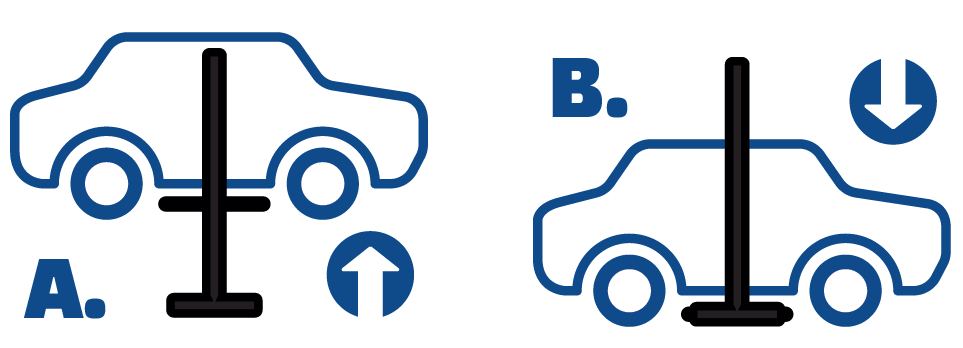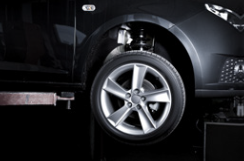DID YOU KNOW: Advice for the professional
If track control arm bushings are fully tightened while the vehicle is ‘hanging’ (e.g. figure A; upper position on a car lift), the new bushes will be ‘pre-stressed’ when the vehicle is returned to its neutral position (figure B).

This ‘pre-stressed’ condition will inevitably cause extremely premature wear of the track control arm bushes.
OVERVIEW
When fixing track control arms to the vehicle sub-frame, never fully tighten the nuts and bolts until the vehicle is grounded i.e. figure B.

INSTALLATION TIPS
To avoid initial over-tightening, limit the first torque to a value which allows the bush inner tube to rotate within its seat while the vehicle is progressively recovering its neutral position. Once the vehicle is fully grounded the final torque value can then be applied.
- ‘Pre-tighten’ at a limited torque value, while the vehicle stands on the lift (figure A)
- Apply the final torque value once the vehicle has recovered its neutral position (figure B)

When fixing track control arms to the vehicle sub-frame, never fully tighten the nuts and bolts until the vehicle is grounded
Browse more Technical Content and jump start your technical knowledge with Garage Gurus.
The content contained in this article is for entertainment and informational purposes only and should not be used in lieu of seeking professional advice from a certified technician or mechanic. We encourage you to consult with a certified technician or mechanic if you have specific questions or concerns relating to any of the topics covered herein. Under no circumstances will we be liable for any loss or damage caused by your reliance on any content.